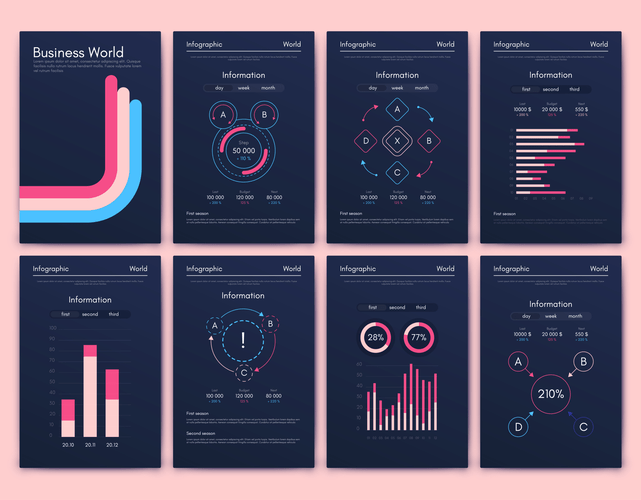It’s very difficult for a computer to know the context of a user’s emotional inflection. This opens up a broad variety of possibilities for computers to know the emotions of consumers and emotions of operators. Using hardware like cameras and IoT sensors, products may be analyzed by AI software program to detect defects routinely. The laptop can then make selections on what to do with defective products mechanically. Here at NETCONOMY, we’ll positively control the present AI-based innovations, in addition to the evolving role of generative AI in manufacturing – and work with our customers to create priceless solutions.

Leveraging AI and machine studying, producers can improve operational effectivity, launch new merchandise, customize product designs, and plan future monetary actions to progress on their digital transformation. However, buyer experience goes far beyond the product, and AI is the right associate to help every step of the finest way. Thanks to predictive maintenance and superior high quality management, AI supports a easy customer expertise with minimal failures or interruptions. And with continuous buyer suggestions, machine studying fashions can be taught and repeatedly refine and enhance the general expertise.
Our Ai & Machine Learning Programs Length And Charges
It’s a precise digital representation of the part and the way it will behave if, for instance, a defect occurs. (All parts have defects; that’s why they fail.) AI is critical for the appliance of a digital twin in manufacturing course of design and upkeep. The totally autonomous manufacturing facility has always been a provocative vision, a lot utilized in speculative fiction.
When used in manufacturing, it may possibly work together with ML to additional improve high quality management whereas additionally detecting defects or out-of-place objects. Additionally, pc vision can be used to inspect objects on a production line to make sure they adhere to high quality standards, including an extra stage of security to manufacturing strains. AI drives eco-friendliness of manufacturing businesses by optimizing vitality consumption, integrating with technologies for renewable power https://www.globalcloudteam.com/ai-in-manufacturing-transforming-the-industry/, and lowering material utilization throughout production. Moreover, this strategy contributes to saving prices, as statistics show that in 2023, all sustainable AI cost-saving measures were reported to have no much less than a forty percent impression on enterprise bills. Moreover, through sentiment analysis strategies, ML fashions analyze large datasets and determine the emotional tone of buyer communications from social media posts, on-line evaluations, and customer surveys.
Rolls Royce – Digital Twins For Predictive Maintenance
AI improves office safety by combining automation, real-time monitoring, and predictive analytics. This multi-pronged method shields workers and retains the manufacturing environment protected. AI optimizes supply chain logistics, inventory management, and procurement processes, enhancing efficiency, lowering costs, and enhancing total provide chain resilience.

AI helps reduce pointless power consumption by way of efficient scheduling of processes inside high-resource instances with less delays or long response times. Using predictive maintenance to schedule restore works to quieter hours and understanding downtimes contributes to decrease operational costs too. AI is instrumental in quality control, ensuring defects are detected early utilizing expertise like computer imaginative and prescient. With AI, the quality control procedure may be largely automated utilizing image recognition algorithms to detect anomalies with higher accuracy than humans alone. Since AI techniques can course of huge amounts of knowledge in a short time, AI hastens high quality control inspections while also minimizing risks related to human error.
Smarter Provide Chain Optimization
The RPA bots automated handbook processes, resolving errors and enhancing supply chain visibility by 60%, ultimately enhancing operational efficiency by 30%. IFS Cloud’s Intelligent Automation presents producers improved operational effectivity, enhanced product quality, higher agility and adaptableness, environment friendly value financial savings and data-driven choice making. Embracing IFS Cloud with intelligent automation capabilities is essential for producers to remain revolutionary and aggressive within an ever digitally transforming industry. AiOla permits manufacturing groups to hurry up inspections by turning handbook processes into speech-based procedures, drastically decreasing the time and assets wanted. This helps provide real-time insights into defective gear whereas also reducing the potential for human error.
The manufacturing facility of the longer term is intuitive, sensible, and loaded with sensors—all thanks to AI in manufacturing. AI-driven manufacturing enhances product safety and reliability by producing precise components, boosting performance and system safety. The AI in aviation market was value $686.four million in 2022 and is predicted to develop at a CAGR of over 20%. For instance, Samsung’s South Korea plant uses automated vehicles (AGVs), robots and mechanical arms for duties like assembly, materials transport, and quality checks for phones like Galaxy S23 and Z Flip 5.

The sensible conception of AI in manufacturing seems extra like a group of functions for compact, discrete systems that handle specific manufacturing processes. They will operate kind of autonomously and reply to external occasions in increasingly clever and even humanlike ways—events ranging from a device carrying out, a system outage, or a fire or natural disaster. To understand the full influence of AI in manufacturing, you will need the support of expert synthetic intelligence improvement services.
Quicker Time-to-market
AI algorithms can identify patterns, detect anomalies, and make data-driven predictions by analyzing historic knowledge, real-time sensor knowledge, and different relevant variables. This allows producers to optimize operations, minimize downtime, and maximize total gear effectiveness. AI within the manufacturing trade is proving to be a recreation changer in predictive upkeep. For manufacturers, embracing AI now represents a strategic transfer in the path of modernizing operations and staying ahead in a aggressive panorama.

This utility of AI significantly accelerates the creation of latest products by permitting for rapid exploration of design options based mostly on specific enterprise goals. Artificial intelligence is also revolutionizing the warehouse administration sector of producing. The creation of AI-powered manufacturing options and machine learning in manufacturing has transformed the way in which warehouses operate, leading to improved effectivity, accuracy, and value savings.
Fanuc Corporation: Predictive Maintenance In Industrial Robots
Additive processes are major targets as a outcome of their products are more expensive and smaller in volume. In the lengthy run, as people develop AI and mature it, it will doubtless turn out to be essential throughout the entire manufacturing worth chain. The utopian vision of that process would be loading supplies in at one end and getting parts out the other.
- Transforming the best way the industry operates and functions, manufacturers are seeing extra methods to optimize operations and boost productiveness, whereas lowering costs.
- A manufacturing facility crammed with robotic workers as quickly as appeared like a scene from a science-fiction film, however at present, it’s just one real-life state of affairs that displays producers’ use of synthetic intelligence.
- Generative design is a bit just like the generative AI we’ve seen in technologies like ChatGPT or Dall-E, besides as a substitute of telling it to create textual content or pictures, we tell it to design merchandise.
- In this article, I’ll explore how 5 industries use AI in manufacturing, and what manufacturing leaders must know about what’s subsequent for the business.
- AiOla enables manufacturing groups to speed up inspections by turning manual processes into speech-based procedures, drastically decreasing the time and resources wanted.
- They also show significantly decrease error rates, a feature that permits producers to scale their manufacturing capacity with confidence.
Robotic Process Automation (RPA) automates repetitive, rule-based tasks that employees usually perform on computer systems. It uses software bots to mimic human actions like knowledge entry, copying files, and filling out types. Frequent changes can result in unexpected house and materials conflicts, which might then create efficiency or safety issues. But such conflicts may be tracked and measured utilizing sensors, and there’s a function for AI in the optimization of manufacturing facility layouts. Facility structure is pushed by many factors, from operator security to the efficiency of course of flow.
The myriad synthetic intelligence applications in manufacturing, as mentioned throughout the weblog, have highlighted AI’s important function in revolutionizing numerous features of the sector. From supply chain administration to predictive maintenance, integrating AI in manufacturing processes has significantly improved efficiency, accuracy, and cost-effectiveness. AI in the supply chain permits leveraging predictive analytics, optimizing stock management, enhancing demand forecasting, and streamlining logistics. ML algorithms can analyze historic information, identify patterns, and precisely predict demand fluctuations.
For all the technologies that we’ll talk about which have applications in manufacturing industries, artificial intelligence just isn’t the most correct method to describe them. AI is a very broad topic that has many alternative strategies and strategies that fall beneath its scope. Robotics, natural language processing, machine learning, computer imaginative and prescient, and more are all completely different strategies that deserve quite a lot of consideration all on their very own.
Still, AI also can completely take over tasks that require substantial human intervention, similar to driving autonomous automobiles. These statistics present that the business acknowledges the importance and benefits of artificial intelligence for manufacturing, and companies are already making an effort to adopt AI in their operations. However, the hole between pilot tasks and fully scaled, profitable AI integrations remains difficult.
They additionally demonstrate considerably lower error rates, a characteristic that permits manufacturers to scale their manufacturing capability with confidence. It units up primary parameters concerning the data and trains the computer to study independently by recognizing patterns using many processing layers. Food and beverage production requires superior high quality assurance, notably in the fast-moving client goods (FMCG) sector, as a result of its “high-speed” nature. Equipment breakdowns and faulty merchandise can hinder that; nonetheless, integrating AI can enhance effectivity, cost-effectiveness and product quality and safety. Manufacturing vegetation, railroads and different heavy tools users are increasingly turning to AI-based predictive maintenance (PdM) to anticipate servicing needs.
The automotive AI market is projected to hit $7 billion by 2027, highlighting it as one of many leading industries in adopting AI in manufacturing. In this article, I’ll discover how five industries use AI in manufacturing, and what manufacturing leaders need to know about what’s next for the industry. At Appinventiv, we successfully assisted Edamama, an eCommerce platform, in implementing tailor-made AI-driven suggestions. By providing personalized recommendations to mothers based mostly on their child’s gender and age, Edamama secured an impressive $20 million in funding.
In industries that depend on extra handbook and conventional processes, like manufacturing, the potential of AI to bring about significant, sweeping change across the board is set to change the sector fully. Implementing complex AI methods requires specialists in information science, AI engineering, and manufacturing. This, coupled with the various levels of digital maturity amongst manufacturers, creates a problem. By offering a central hub for amassing and monitoring manufacturing data in real-time, it can break down data silos, guarantee data quality, and streamline the circulate of information. AI-powered imaginative and prescient techniques can examine products with far larger accuracy and speed than human inspectors, who’re more prone to creating errors (and overlooking them). For optimum performance and upkeep of aviation engines, the plane manufacturer Rolls-Royce developed a digital twin platform to consolidate knowledge from all produced engines.